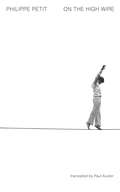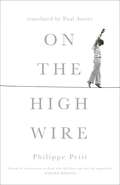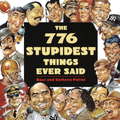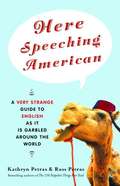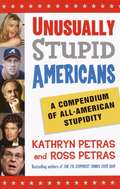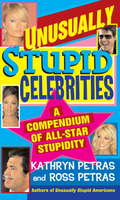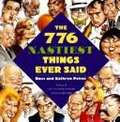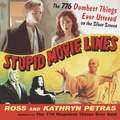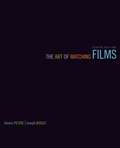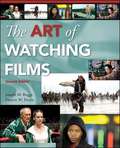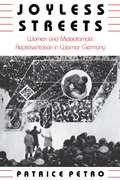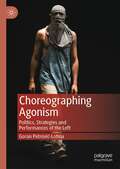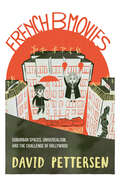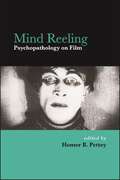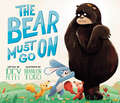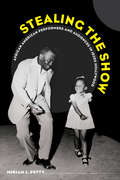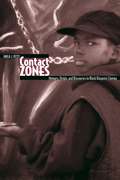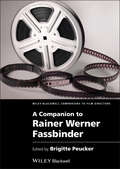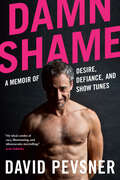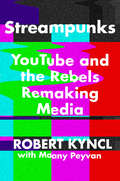- Table View
- List View
On the High Wire
by Philippe Petit“On the High Wire is fascinating to read. You will learn about the man, his work, his passion, his tenacity and lucidity” (Marcel Marceau) In this poetic handbook, written when he was just twenty-three, the world-famous high-wire artist Philippe Petit offers a window into the world of his craft. Petit masterfully explains how preparation and self-control contributed to such feats as walking between the towers of Notre Dame and the World Trade Center. Addressing such topics as the rigging of the wire, the walker’s first steps, his salute and exercises, and the work of other renowned high-wire artists, Petit offers us a book about the ecstasy of conquering our fears and reaching for the stars.
On the High Wire (W&N Essentials)
by Philippe PetitIn this poetic handbook, written when he was just twenty-three, the world-famous high-wire artist Philippe Petit offers a window into the world of his craft. Petit masterfully explains how preparation and self-control contributed to such feats as walking between the towers of Notre Dame and the World Trade Center. Addressing such topics as the rigging of the wire, the walker's first steps, his salute and exercises, and the work of other renowned high-wire artists, Petit offers us a book about the ecstasy of conquering our fears and reaching for the stars.
The 776 Stupidest Things Ever Said
by Kathryn Petras Ross PetrasA connoisseur's compendium of Freudian slips, spoonerisms, double-talk, and utter bosh from famous and infamous figures past and present -- a complete course in anti-eloquence by the foot-in-mouth champions of all time.
Here Speeching American: A Very Strange Guide to English as It Is Garbled Around the World
by Kathryn Petras Ross PetrasTHE STRANGEST (AND FUNNIEST) TRAVEL GUIDE YOU'LL EVER READ. The celebrated authors of the perennial bestseller The 776 Stupidest Things Ever Said set the typical travel guide squarely on its head--taking you from the airport to the hotel, from sightseeing to dining out--by using 100 percent real examples of fractured English as spoken and posted abroad: * Feel like shopping? We have no good things to sell. --shop sign, Lovina Beach, Bali.
Unusually Stupid Americans: A Compendium of All-American Stupidity
by Kathryn Petras Ross PetrasA hilarious collection of lists, statistics, news items, quotations, and facts detailing stupid acts of Americans from all walks of life--by the authors of the bestselling The 776 Stupidest Things Ever Said. Everyone knows that America is "the land of the free and the home of the brave," but sometimes that means we're free to be as bravely stupid as we want!
Unusually Stupid Celebrities: A Compendium of All-Star Stupidity
by Kathryn Petras Ross PetrasThe Greeks honored Zeus, the Romans revered Juno, but modern civilization worships a different sort of god: Celebrity. Face it, we follow the stars' every move, fashion choice, and deliciously dishy affairs. Now Kathryn Petras and Ross Petras, authors of Unusually Stupid Americans, pull the demanding divas, screwball stars, and celebu-twits off their pedestals-and prove it doesn't take a degree in rocket science to become famous. Cases in point: * Courtney Love misses an important court date relating to "possession of a controlled substance" because she can't find a professional bodyguard at the last minute. * Mariah Carey's entourage includes a skirt-from-touching-floor specialist, a towel hand-off person, and a professional drink holder/lifter. * Savvy traveler Paris Hilton concludes that all of Europe is, "like, French. " * Mensa candidate and rocker Tommy Lee is pretty sure that Winston Churchill was president during the Civil War, that the numeric equivalent of pi is "the two-equals-MC-squared thing," and that an isosceles triangle is "somewhere in Bermuda." Feuds, faith, family, money, sex, tantrums, travel-no star-studded stone is left unturned. Filled with jaw-dropping anecdotes, quirky quotes, and special stupid-celebrity awards, Unusually Stupid Celebrities provides a red-faced glimpse of the red carpet.
Unusually Stupid Politicians: Washington's Weak in Review
by Kathryn Petras Ross PetrasKathryn Petras and Ross Petras, bestselling authors of the scathingly funny Unusually Stupid Americans and Unusually Stupid Celebrities, now set their bipartisan sights on the hallowed halls of the United States government. Unusually Stupid Politicians exposes the mind-boggling but true political mishaps, missteps, and miscues that have even the savviest spin doctors shaking their heads and saying "No comment." Sections include * Extreme Hairsplitting--such as when Florida governor Jeb Bush, after being accused of hiding in a closet from rampaging Democrats, denied the allegation completely, stating that "it was actually a boiler room" * Brilliant and Innovative Ideas from The Pentagon-- like their groundbreaking "Gay Bomb," their "Bad Breath Inducing" halitosis weapon and their plans to enlist The Three Stooges in the fight against terror. * Creative Political Excuses--such as "I just discovered I'm Jewish and it's a Holy Day,"--used by Senator George Allen, who, after learning of his Jewish heritage, got out of a Senate hearing to "observe" Yom Kippur * The Most Egregiously Large Political Egos--measured in standard Chuck Schumer Ego Units (CSEUs). This hilarious and eye-opening exposé gives awards for "How I Blew My Campaign" and "Worst Campaign Ad," and shares a list of candidates "endorsed by God," as well as a list of those who lost because of Satan. So turn off C-SPAN and quit text-messaging congressional pages--you're about to learn what the definition of "is" is.
The 776 Nastiest Things Ever Said
by Ross Petras Kathryn PetrasA hilarious collection of malicious, crude and catty quotes taken straight from the mouths of well-known entertainers, authors, politicians and other public figures. Ross and Kathryn Petras are writers and media junkies. When not collecting other people's stupidities and nasty comments, they collect their own.
Stupid Movie Lines: The 776 Dumbest Things Ever Uttered on the Silver Screen
by Ross Petras Kathryn PetrasThe creme de la crud of screen history "War! War! That's all you think of, Dick Plantagenet! You burner! You pillager!" --Virginia Mayo as Lady Edith to George Sanders in King Richard and the Crusaders (1954) "Visits? That would indicate visitors. " --Army captain learning of alien visits in Plan 9 from Outer Space (1959) "When I'm sitting here with you, I don't even think about the slime people. " --Hero to heroine in The Slime People (1962) "Suck the coffin mushroom now. " --The Ultimate Vampire (1991) "This is bad. " --Leonardo DiCaprio as the you-know-what hits the you-know-what in Titanic (1997)
The Art of Watching Films (8th Edition)
by Dennis Petrie Joe BoggsWith an emphasis on the narrative film,The Art of Watching Films challenges students to take their film experience further by sharpening their powers of observation, developing the skills and habits of perceptive watching, and discovering complex aspects of film art that they might otherwise overlook. The Art of Watching Films introduces the formal elements and production process of films, and helps students analytically view and understand films within their historical, cultural and social contexts. The text presents an analytical framework that can be applied to all movies, as distinctly different as Avatar, The Girl with the Dragon Tattoo, Vertigo, Iron-Man, Man on Wire, and The Hurt Locker.
The Art Of Watching Films (Seventh Edition)
by Dennis W. PetrieNot only is there an art to making films, there is also an art to watching films. We wrote this book to challenge students in introduction to film courses to sharpen their powers of observation, develop the skills and habits of perceptive watching, and discover complex aspects of film art that they might otherwise overlook. We designed the text to complement any film studied; its analytical framework can be applied to films as distincly different as The Grapes of Wrath, Caché, Dreamgirls, Batman Begins, Little Miss Sunshine, and Flags of our Fathers.
Joyless Streets: Women and Melodramatic Representation in Weimar Germany
by Patrice PetroPatrice Petro challenges the conventional assessment of German film history, which sees classical films as responding solely to male anxieties and fears. Exploring the address made to women in melodramatic films and in popular illustrated magazines, she shows how Weimar Germany had a commercially viable female audience, fascinated with looking at images that called traditional representations of gender into question. Interdisciplinary in her approach, Petro interweaves archival research with recent theoretical debates to offer not merely another view of the Weimar cinema but also another way of looking at Weimar film culture. Women's modernity, she suggests, was not the same as men's modernism, and the image of the city street in film and photojournalism reveals how women responded differently from men to the political, economic, and psychic upheaval of their times.
Choreographing Agonism: Politics, Strategies and Performances of the Left
by Goran Petrović-LotinaIn Choreographing Agonism, author Goran Petrović Lotina offers new insight into the connections between politics and performance. Exploring the political and philosophical roots of a number of recent leftist civil movements, Petrović Lotina forcefully argues for a re-imagining of artistic performance as an instrument of democracy capable of contesting a dominant politics.Inspired by post-Marxist theories of discourse theory, hegemony, conflict, and pluralism, and using tension as a guiding philosophical, political, and artistic force, the book expands the politico-philosophical debate on theories of performance. It offers both scholars and practitioners of performance a thought-provoking analysis of the ways in which artistic performance can be viewed politically as ‘agonistic choreo-political practice,’ a powerful strategy for mobilising alternative ways of living together and invigorating democracy.Choreographing Agonism makes a bold and innovative contribution to the discussion of political and philosophical thought in the field of Performance Studies.
French B Movies: Suburban Spaces, Universalism, and the Challenge of Hollywood (New Directions in National Cinemas)
by David A. PettersenIn the impoverished outskirts of French cities, known as the banlieues, minority communities are turning to American culture, history, and theory to make their own voices, cultures, and histories visible. Filmmakers have followed suit, turning to Hollywood genre conventions to challenge notions of identity, belonging, and marginalization in mainstream French film.French B Movies proposes that French banlieue films, far from being a fringe genre, offer a privileged site from which to understand the current state of the French film industry in an age of globalization. This gritty style appears in popular arthouse films such as Mathieu Kassovitz's La Haine and Bande de filles (Girlhood) along with the major Netflix hit series Lupin. David Pettersen traces how, in these works and others, directors fuse features of banlieue cinema with genre formulas associated with both Hollywood and Black cultural models, as well as how transnational genre hybridizations, such as B movies, have become part of the ecosystem of the French film industry.By combining film analysis, cultural history, critical theory, and industry studies, French B Movies reveals how featuring banlieues is as much about trying to imagine new identities and production models for French cinema as it is about representation.
Mind Reeling: Psychopathology on Film (SUNY series, Horizons of Cinema)
by Homer B. PetteyMind Reeling investigates how cinema displays and mirrors psychological disorders, such as bipolar disorder, amnesia, psychotic delusions, obsessive compulsive behavior, trauma, paranoia, and borderline personalities. It explores a range of genres, including biopics, comedies, film noirs, contemporary dramedies, thrillers, Gothic mysteries, and docufictions. The contributors open up critical approaches to audience fascination with film depictions of serious disturbances within the human psyche. Many films examined here have had little scholarly attention and commentary. These essays focus on how cinematic techniques contribute to popular culture's conception of mental dysfunction, trauma, and illness. This book reveals the complex artistic and generic patterns that produce contemporary images of psychopathology in cinema.
The Bear Must Go On
by Dev PettyIn this hilarious story of theatrical hijinks, plans go awry when four woodland friends stage a show--unless Bear can step up and save the day!Bear and his woodland friends are putting on a show, and there are lots of plans to be made. Their curtains need sequins! Their hats must be very, very tall! And their tickets have to be shiny! (No one will come if the tickets are dull.)Behind the scenes, shy Bear takes notes on every detail until his paws ache. But at least he won't have to go on stage. He could NEVER do that!. . . Or could he?In this uproarious tale of theatrical mishaps told with hilariously endearing art, four woodland friends bring down the house--and have plenty of fun along the way.Praise for The Bear Must Go On:"A snort-inducing lesson of both bravery and preparation." --Kirkus Reviews"The rewarding finale . . . applauds facing one's fears, being a good friend, and keeping an eye on the big picture." --Publishers Weekly"Witty and wonderful . . . A cheerful story, conveying the joy of creation, the fun of friendship, and the beauty of stepping outside one's comfort zone." --Booklist"Youngsters who find the spotlight too bright might be inspired by Bear's turn on the stage, and show stealers may also reconsider and revalue the contributions of pals who stay behind the scenes." --BCCB"This playful and endearing story offers young readers a heartfelt message about collaboration and overcoming fear, making it an excellent choice for most collections." --SLJ
Stealing the Show: African American Performers and Audiences in 1930s Hollywood
by Miriam J. PettyStealing the Show is a study of African American actors in Hollywood during the 1930s, a decade that saw the consolidation of stardom as a potent cultural and industrial force. Petty focuses on five performers whose Hollywood film careers flourished during this period--Louise Beavers, Fredi Washington, Lincoln "Stepin Fetchit" Perry, Bill "Bojangles" Robinson, and Hattie McDaniel--to reveal the "problematic stardom" and the enduring, interdependent patterns of performance and spectatorship for performers and audiences of color. She maps how these actors--though regularly cast in stereotyped and marginalized roles--employed various strategies of cinematic and extracinematic performance to negotiate their complex positions in Hollywood and to ultimately "steal the show. " Drawing on a variety of source materials, Petty explores these stars' reception among Black audiences and theorizes African American viewership in the early twentieth century. Her book is an important and welcome contribution to the literature on the movies.
Contact Zones: Memory, Origin, and Discourses in Black Diasporic Cinema
by Sheila J. PettyCreated at the crossroads of slavery, migration, and exile, and comprising a global population, the black diaspora is a diverse space of varied histories, experiences, and goals. Likewise, black diasporic film tends to focus on the complexities of transnational identity, which oscillates between similarity and difference and resists easy categorization. In Contact Zones author Sheila J. Petty addresses a range of filmmakers, theorists, and issues in black diasporic cinema, highlighting their ongoing influences on contemporary artistic and theoretical discourses. Petty examines both Anglophone and Francophone films and theorists, divided according to this volume's three thematic sections--Slavery, Migration and Exile, and Beyond Borders. The feature films and documentaries considered--which include Sankofa, Daughters of the Dust, The Man by the Shore, and Rude, among others--represent a wide range of cultures and topics. Through close textual analysis that incorporates the work of well-known diasporic thinkers like W. E. B. DuBois, Aimé Césaire, and Frantz Fanon along with contemporary notables such as Molefi Kete Asante, bell hooks, Clenora Hudson-Weems, René Depestre, Paul Gilroy, and Rinaldo Walcott, Petty details the unique ways in which black diasporic films create meaning. By exploring a variety of African American, Caribbean, Black British, and African Canadian perspectives, Contact Zones provides a detailed survey of the diversity and vitality of black diasporic contributions to cinema and theory. This volume will be a welcome addition to the libraries of scholars and students of film studies and Africana studies.
A Companion to Rainer Werner Fassbinder
by Brigitte PeuckerA Companion to Rainer Werner Fassbinder is the first of its kind to engage with this important figure. Twenty-eight essays by an international group of scholars consider this controversial director's contribution to German cinema, German history, gender studies, and auteurship.A fresh collection of original research providing diverse perspectives on Fassbinder's work in films, television, poetry, and underground theatre.Rainer Werner Fassbinder remains the preeminent filmmaker of the New German Cinema whose brief but prolific body of work spans from the latter half of the 1960s to the artist's death in 1982.Interrogates Fassbinder's influence on the seminal ideas of his time: auteurship, identity, race, queer studies, and the cataclysmic events of German twentieth century historyContributions from internationally diverse scholars specializing in film, culture, and German studies.Includes coverage of his key films including: Gods of the Plague (1970), Beware of a Holy Whore (1971), The Bitter Tears of Petra von Kant (1972), Martha (1973) (TV), World on a Wire (1973), Effi Briest (1974), Ali: Fear Eats the Soul (1974), Fox and His Friends (1975), Fear of Fear (1975), Chinese Roulette (1976), In a Year With 13 Moons (1978), Despair (1978), The Third Generation (1979), Berlin Alexanderplatz (1980) (TV), and Querelle (1982).
Donald Shebib's 'Goin' Down the Road'
by Geoff PevereSince its release in July 1970, Donald Shebib's low-budget road movie about displaced Maritimers in Toronto has become one of the most celebrated Canadian movies ever made. In this study of Goin' Down the Road, renowned film critic Geoff Pevere provides an engaging account of how a film produced under largely improvised circumstances became the most influential Canadian movie of its day as well as an enduring cultural touchstone.Featuring extensive interviews with the film's key participants, Pevere provides behind-the-scenes history and explores how the movie's meaning and interpretation have changed over time. He gives special attention to the question of why the film's creative mix of documentary techniques, road movie tropes, and social commentary have proven so popular and influential in Canadian filmmaking for decades.
Damn Shame: A Memoir of Desire, Defiance, and Show Tunes
by David PevsnerA funny, daring, bawdy and incredibly honest memoir from the anti-ageist, anti-body shaming, pro-sex advocate and erotic provocateur.Over the course of his 40-year career in show business, David Pevsner has done it all. He&’s acted on Broadway, off-Broadway, in independent films and on numerous TV network shows including Grey&’s Anatomy, Modern Family and Criminal Minds. As he continues his career in entertainment, Pevsner has also dedicated himself to exploring his deepest sexual fantasies. In his late 30s he became a mature male escort and over the last several years has attracted a large international fan base through his blog of erotic photographs celebrating nudity and sexuality. Damn Shame is David Pevsner&’s incredible story and is a passionate and poignant look at one man&’s journey from a thin, shy boy ashamed of his body and sexuality to a defiant, fearless everyman exploring his erotic desires, everything from leather and S&M to nude/erotic/hardcore modelling. Along the way, he fights back against society&’s demonization of gay sex, body shaming and ageism while pursuing his own very personal definition of success and seeking love, validation and self-esteem. Damn Shame gives a loud and powerful voice to a generation of mature men who have been conditioned to believe from society (and especially younger members of the gay community) that they are sexually irrelevant, old and undesirable. Pevsner&’s life story goes in directions that many couldn&’t imagine, but the lessons learned through his experiences will resonate with readers of every age.
The Beethoven Medal (Pennington #2)
by K. M. Peyton"There are plenty of nice steady boys you could go out with," her mother told her, but Ruth Hollis knew that beside Patrick other boys would seem insipid and dull. Ruth was quiet, but she had a streak of stubbornness in her nature, and she enjoyed a challenge. When she was younger and crazy about horses, she had always liked to ride the most difficult ponies; so perhaps it wasn't surprising that now, as a girl of sixteen, she should find herself involved with Patrick Pennington--a singularly complex, wild, and talented young man. Nevertheless, Ruth found herself wondering if this particular challenge was going to prove too much for her--with far-reaching consequences for herself and her family. K. M. Peyton, winner of the Carnegie Medal and the Guardian Award for her distinguished contribution to children's literature, has written a tender, funny, and convincing story of two very appealing young people on the verge of love.
Marion's Angels (Pennington #4)
by K. M. PeytonMarion's Angels is an unusual novel about a lonely girl and her love for an impressive medieval church on the river marsh near her father's cottage. "That queer little Marion", the villagers would say, "Why would she want a church of her own?" But Marion, in an emotional tangle after her mother's death, didn't care what they thought of her strange fascination. She carefully tended the church and its twelve beautifully carved angels that seemed to her almost alive, praying intensely for the money to save it from ruin. A miracle seems to result from her passionate prayers for her angels. A world famous violinist takes up the cause and arranges a series of benefit performances. Marion is tumbled into a world of concerts and professional musicians--and a confusing web of relationships and connection with the supernatural. In the end crisis, one of Marion's angels seems to save her life--another miracle or just chance? This is a compelling novel for young people, sympathetically portraying a sensitive young girl and her mysterious glimpses of seemingly supernatural coincidences. Peyton, long acknowledged as an outstandingly original writer, tells this story with characteristic warmth and humor, and provides as well interesting insights into the world of professional musicians. It is a story that lingers with the reader long after it has been put down. K. M. Peyton was born in Birmingham, England, and educated at Wimbledon High School, Kingston School of Art and Manchester Art School. It was while an art student that she met her husband, who is a freelance commercial artist. Mrs. Peyton has been writing since she was nine--she had her first book published at fifteen--and when her first daughter was born, she gave up her job as an art teacher to follow a full-time career in writing. Since then she has won several awards, including the Carnegie Medal, and two of her books have been chosen as American Library Association Notable Books. Her celebrated trilogy Flambards has been televised in England.
Pennington's Heir (Pennington #3)
by K. M. PeytonGetting out of prison was like being born again, said Patrick Pennington. His adoring girl friend, seventeen-year-old Ruth Hollis, was waiting for him. Professor Hampton, Pat's piano teacher, had waited, too, for his impetuous star pupil to get out and get back to his music again. Now it looked like a sure, straight road to success, if Pat could just keep himself out of trouble and stick with his studies. But trouble and Pat Pennington have an affinity for each other. When Ruth tells him she is going to have his baby, Pat must face a new kind of problem--one that threatens both his personal happiness and his future as a concert pianist. Patrick Pennington, the rebellious and talented anti-hero of Pennington's Last Term and The Beethoven Medal, doesn't settle easily into the role of husband, father, and breadwinner. With humor, compassion, and deep insight, K. M. Peyton portrays a very young, very loving couple's rocky first year of marriage.
Streampunks: YouTube and the Rebels Remaking Media
by Maany Peyvan Robert KynclAn entertainment and tech insider—YouTube’s chief business officer—delivers the first detailed account of the rise of YouTube, the creative minds who have capitalized on it to become pop culture stars, and how streaming video is revolutionizing the media world.In the past ten years, the internet video platform YouTube has changed media and entertainment as profoundly as the invention of film, radio, and television did, more than six decades earlier. Streampunks is a firsthand account of this upstart company, examining how it evolved and where it will take us next.Sharing behind-the-scenes stories of YouTube’s most influential stars—Streampunks like Tyler Oakley, Lilly Singh, and Casey Neistat—and the dealmakers brokering the future of entertainment like Scooter Braun and Shane Smith, Robert Kyncl uses his experiences at three of the most innovative media companies, HBO, Netflix, and YouTube, to tell the story of streaming video and this modern pop culture juggernaut. Collaborating with Google speechwriter Maany Peyvan, Kyncl explains how the new rules of entertainment are being written and how and why the media landscape is radically changing, while giving aspiring Streampunks some necessary advice to launch their own new media careers.Kyncl persuasively argues that, despite concerns about technology impoverishing artists or undermining artistic quality, the new media revolution is actually fueling a creative boom and leading to more compelling, diverse, and immersive content. Enlightening, surprising, and thoroughly entertaining, Streampunks is a revelatory ride through the new media rebellion that is reshaping our world.
